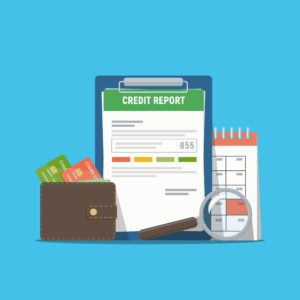Stop Living Paycheck to Paycheck with These Tips from a Bankruptcy Lawyer in NC

Do you often feel trapped by the paycheck-to-paycheck cycle? Do you find yourself continuously counting down the days until your next direct deposit hits your bank account? You’re not alone. Living paycheck to paycheck is a reality for many Americans. For people who have little to no savings, just one unexpected bill can completely derail your financial situation.
If you’re tired of living paycheck to paycheck, it’s important to know that there are ways to improve your financial situation, no matter how dire it may seem at the moment.
In this article, we’ll take a look at the top causes of living paycheck to paycheck, how to end this cycle, and how bankruptcy might be a solution for you.
How Many Americans Live Paycheck to Paycheck?
An estimated 8 out of 10 workers in the United States live paycheck to paycheck, according to an article in Forbes. This number probably doesn’t come as a surprise to most middle-class Americans.
For many people, not being able to afford rent, groceries, or pay essential bills after being hit with an unexpected expense is a common fear and a very real possibility. This is especially true for people who work in cities where jobs are more plentiful, but where the cost of living is not aligned with wages. It’s not uncommon for workers in these situations to spend 50% of their take-home pay on rent or mortgage payments alone.
But shockingly, this isn’t just limited to low-wage earners or lower-middle-class families. One in 10 workers with a salary of at least $100,000 is still living paycheck to paycheck, Forbes reports.
Why are so many Americans caught in this cycle? For some, not sticking to a budget is the biggest issue. But for others, consumer debt is a never-ending problem that prevents people from getting ahead financially.
3 Tips to End the Paycheck-to-Paycheck Cycle
Create a Household Budget
Creating a budget is often the No. 1 tip for ending the paycheck-to-paycheck cycle. That’s because it really does work. Many people are hesitant to create a budget because they don’t want to feel constrained. Or, you might be thinking, “I can barely pay my bills as it is. How can I budget even further?”
But in most cases, budgeting isn’t about living an entirely minimal lifestyle. It’s simply about prioritizing and allocating your money properly. This allows you to pay off consumer debt, maximize your income, and save for the future while still being able to take care of yourself (and your family) along the way.
In fact, after creating a budget, many people are surprised to learn that they can comfortably live within their means. This is because a budget forces you to be mindful of your spending. When you spend aimlessly without setting boundaries for yourself, it’s easy to overspend and feel financially strained every month.
Track Your Spending
Before creating a budget, you may want to track your spending first to see where your money is going. For one month, document every purchase and outflow of money. You can do this manually in a spreadsheet or use an app.
At the end of the month, take a good look at these areas: housing, loans, meals out, groceries, entertainment, and savings. Once you identify the areas where you’re overspending, you can take actionable steps.
For example, in order to manage the amount you are spending, you may need to:
- Cook more meals at home and bring your lunch to work instead of eating out
- Reduce or eliminate extracurricular activities of your child(ren)
- Cut the cord and opt for streaming services instead of expensive cable packages
- Reduce impulse shopping
- Set up an automatic transfer to your savings account every month
Pay Off Consumer Debt
If you’re tired of living paycheck to paycheck, paying off your consumer debt is essential. It’s nearly impossible to get ahead when a big chunk of your income is going toward high-interest payments every month.
There are different approaches you can take when paying off consumer debt, for example:
- Snowball Method – Pay off your debt in order from the smallest balance to the largest balance. When the smallest balance is paid off, use the money you were paying on that balance toward the next debt. This allows you to have small victories on your path to being debt-free.
- Avalanche Method – Pay off balances with the highest interest rate first. With this approach, you may save more time and interest fees in the long-run, since you’re targeting the most toxic debt first.
If your current income doesn’t allow you to make serious progress on paying off your consumer debt, you may have to take more drastic measures, at least temporarily. Consider downsizing your living situation, or move in with roommates for a year. If it’s possible to get a side hustle, use that extra income toward paying off debt.
How Bankruptcy Could Help Your Financial Situation
 For many people, bankruptcy is the only realistic option for getting out of debt, ending the paycheck-to-paycheck cycle, and starting fresh. Whether its student debt, consumer debt or poor financial management that has put someone in a bad place with their finances, there is still a chance at starting over. There are different types of bankruptcy and requirements, but essentially, it’s a way for consumers to wipe out their debt while satisfying creditors. Filing for bankruptcy is a legal process, so you have to file for bankruptcy through the court system.
For many people, bankruptcy is the only realistic option for getting out of debt, ending the paycheck-to-paycheck cycle, and starting fresh. Whether its student debt, consumer debt or poor financial management that has put someone in a bad place with their finances, there is still a chance at starting over. There are different types of bankruptcy and requirements, but essentially, it’s a way for consumers to wipe out their debt while satisfying creditors. Filing for bankruptcy is a legal process, so you have to file for bankruptcy through the court system.
While bankruptcy can have long-term consequences, like remaining on your credit report for about 7-10 years, it can provide a great deal of relief and put you in a better financial position. It was designed to allow consumers with a large amount of debt to start over again.
Benefits of bankruptcy include:
- Delaying or stopping evictions, foreclosures, and repossessions
- Eliminating or greatly reducing your consumer debt
- Stopping creditors from harassing you
- Avoiding using up your savings or retirement to pay off debt
- Starting fresh, developing healthy spending habits, and finally putting an end to living paycheck to paycheck
Talk to Sasser Law Firm for Help Dealing with Debt
If you are living paycheck to paycheck because of debts that you can’t pay off, an experienced North Carolina bankruptcy attorney can help. The sooner you speak with an attorney, the sooner you can improve your financial situation.
At Sasser Law Firm, our board-certified bankruptcy specialists are ready to review your situation, explain your options, guide you through the process, and help you get back on track. Our extensive experience includes bankruptcy cases for both individuals and businesses.
Contact us today to schedule a free consultation at our office in Cary, NC.
- About the Author
- Latest Posts
For more than 20 years, the Sasser Law Firm has been helping individuals and business owners sort through financial hardships to see the light at the end of the tunnel. Our North Carolina bankruptcy attorneys are all board-certified specialists, which means we have passed a complex exam, undergone a thorough peer review, and continue to earn legal education credits in this ever-evolving area of law.














